Are you looking to understand shipping rates from China to Austria?With the complexities of international shipping, knowing how to navigate these costs can be challenging.
In this article, we will dive into the factors influencing shipping rates, explore different shipping methods, and provide insights on calculating costs effectively. Whether you’re considering air freight for urgent deliveries or sea freight for bulk shipments, this comprehensive guide will equip you with the knowledge to make informed shipping decisions.
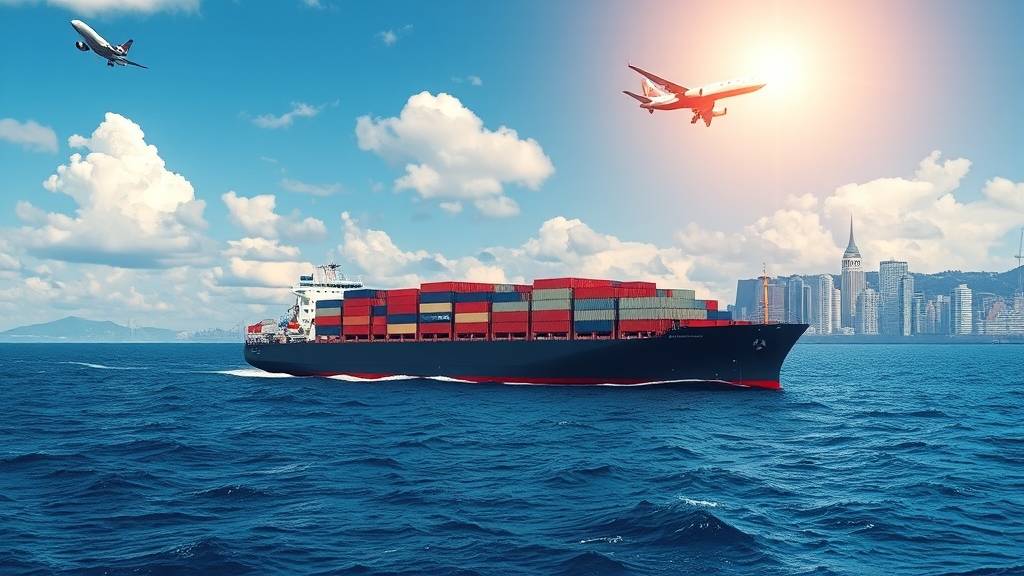
Understanding Shipping Rates from China to Austria
Shipping rates from China to Austria are influenced by various factors that can significantly impact the overall cost and efficiency of your shipping process. Understanding these factors is essential for businesses looking to import goods cost-effectively.
Factors Influencing Shipping Rates
Distance and Transit Time: The distance between China and Austria, as well as the expected transit time, plays a vital role in determining shipping rates. Generally, shorter transit times are associated with higher costs, especially for air freight.
Shipping Method: The choice between air freight, sea freight, rail freight, or other methods will greatly affect the shipping rate. Each method has its own pricing structure based on speed, capacity, and distance.
Cargo Volume and Weight: The size and weight of the shipment are crucial. Shipping costs are often calculated based on dimensional weight, which considers both the weight and volume of the cargo.
Fuel Prices: Fluctuations in fuel prices can directly affect shipping rates. When fuel prices rise, carriers often pass those costs onto shippers.
Seasonality: Shipping rates can vary depending on the season. Peak shipping seasons, such as before holidays, often see increased demand and higher prices.
Insurance and Additional Services: If you opt for insurance or additional services such as tracking, these will add to the overall shipping cost. For more information on options like this, check out our Insurance Services.
Types of Shipping Methods Available
When shipping goods from China to Austria, several shipping methods are available, each with its own benefits:
Air Freight: Best suited for time-sensitive shipments. Although air freight is typically more expensive, it offers fast transit times, often delivering goods within a few days. This method is ideal for smaller shipments or high-value items. For insight into costs, refer to our page on Air Freight.
Sea Freight: The most cost-effective option for bulk shipments. Although it takes longer (typically 20-30 days), sea freight can significantly reduce shipping costs for larger volumes. It is suitable for non-urgent deliveries and is often used for industrial goods and merchandise. For more details on sea freight, visit Sea Freight From China to Austria.
Rail Freight: This method combines the speed of air freight and the cost-effectiveness of sea freight. With emerging rail routes connecting China and Europe, it offers a balanced solution for businesses looking to reduce costs while maintaining reasonable transit times. For more information, check out our Rail Service From China to Europe.
Consolidated Freight: This involves combining multiple shipments from different customers into one container, which can lower costs for individual shippers. It is particularly beneficial for small to medium-sized businesses that do not have enough volume to fill a full container. Learn more about Consolidated Freight.
Comparing Air Freight and Sea Freight Costs
When choosing between air freight and sea freight for shipping from China to Austria, it’s important to understand the advantages and cost implications of each method.
Advantages of Air Freight for Urgent Shipments
Air freight is the go-to option for time-sensitive shipments. Here are some key advantages:
- Speed: Air freight can reduce delivery times to a matter of days, making it ideal for urgent deliveries.
- Reliability: Airlines often have more predictable schedules compared to sea freight, which may be subject to delays due to weather or port congestion.
- Less Handling: Air shipments typically involve fewer handling points, reducing the risk of damage.
Cost-Effectiveness of Sea Freight for Bulk Shipping
Although slower, sea freight remains a preferred choice for bulk shipping due to its cost advantages:
Lower Rates: Shipping by sea is generally more economical for larger volumes. For example, the cost of shipping a 20-foot container from Shanghai to Vienna can be significantly lower than air freight options. For more details, see our shipping rates from china to usa.
Shipping Method Approximate Cost per Container Transit Time Air Freight $4,000 – $8,000 3-5 days Sea Freight $1,000 – $3,000 20-30 days Sustainability: Sea freight is considered more environmentally friendly per ton of cargo transported compared to air freight.
Understanding these factors will help businesses make informed decisions when selecting the most appropriate shipping method for their needs. Whether opting for the speed of air freight or the cost-effectiveness of sea freight, partnering with a reliable freight forwarder like Dantful International Logistics can enhance your shipping experience and ensure seamless logistics management.
Read More:
- Shipping From China to Australia
- Shipping From China to New Zealand
- Shipping From China to Papua New Guinea
- Shipping From China to Fiji
- Shipping From China to Solomon Islands
- Shipping From China to Vanuatu
Key Components of Shipping Costs from China to Austria
When importing goods from China to Austria, understanding the shipping costs is crucial for budgeting your business operations. The shipping costs are influenced by various components, including the base rate, additional charges, customs duties, and taxes.
Base Rate and Additional Charges Explained
The base rate is the fundamental fee determined by the chosen shipping method, which can be either air freight or sea freight. This rate typically depends on factors such as:
- Weight and Volume: Most shipping companies calculate the base rate based on the weight or dimensional weight (volumetric weight) of the shipment. It’s essential to measure accurately, as underestimating can lead to higher costs.
- Shipping Route: The distance between the departure port in China and the destination port in Austria significantly influences the base rate. Direct shipping routes may have lower costs due to reduced transit times.
In addition to the base rate, you may encounter several additional charges, including:
- Fuel Surcharges: Fluctuations in fuel prices can lead to additional costs, often added to the base rate.
- Port Fees: Charges for using the port facilities, which can vary by port.
- Handling Fees: Costs incurred for loading and unloading goods.
- Insurance: Coverage for potential damages or losses during transit, which, while optional, is highly recommended.
Customs Duties and Taxes to Consider
When importing goods into Austria, it is crucial to account for customs duties and value-added tax (VAT). The duties are determined by the HS Code (Harmonized System Code) of the products, which outlines the tariff classification.
Customs Duties: These are taxes imposed on imports, calculated as a percentage of the customs value of the goods. The percentage can vary depending on the type of goods being shipped. For example, some electronics may have a different duty rate compared to textiles. More detailed information can be found on the European Commission’s TARIC database.
Value-Added Tax (VAT): In Austria, the standard VAT is 20%, which is applied to the total cost of goods, including shipping and duties. It is important to be aware of VAT obligations, as failure to pay will result in delays and potential penalties.
Understanding these components is essential for accurate budgeting and financial planning when importing goods from China to Austria. If you need assistance, consider consulting a reliable freight forwarder from China to Austria.
How to Calculate Your Shipping Costs
Calculating shipping costs accurately can be a complex task. However, utilizing the right tools and resources can simplify the process and help you avoid common pitfalls.
Tools and Resources for Accurate Cost Estimation
Freight Forwarder Quotes: Working with a reliable freight forwarder, such as Dantful International Logistics, can provide you with tailored quotes that include all potential costs. They can help you navigate the complexities of shipping logistics and give you a comprehensive overview of expected expenses.
Online Freight Calculators: Many logistics companies offer online tools that allow you to enter your shipment details (weight, dimensions, origin, and destination) to receive quick estimates. While these calculators may not include all charges, they can provide a rough idea of the shipping costs.
Shipping Rate Charts: Some providers publish shipping rate charts that can serve as a reference for general rates from China to Austria. These can be beneficial for initial cost assessments.
Common Mistakes to Avoid When Estimating Costs
Neglecting Additional Charges: One of the most common errors is overlooking additional charges that may apply. Always request a detailed breakdown of costs from your freight forwarder to avoid surprises.
Inaccurate Measurements: Underestimating the weight or dimensions of your shipment can lead to unexpected increases in shipping fees. Always verify these measurements to ensure accurate calculations.
Not Considering Customs Duties: Many importers forget to factor in customs duties and VAT, which can significantly affect the total cost. Make sure to research the applicable rates for your specific products.
By employing the right strategies and avoiding common mistakes, you can achieve a more accurate estimation of your shipping costs from China to Austria. For more information on shipping, check out our guide on Shipping From China to Austria.
Tips for Reducing Shipping Costs from China to Austria
Leveraging Volume Discounts and Negotiation Tactics
Reducing shipping costs from China to Austria can significantly enhance your bottom line as an importer. One effective strategy is to leverage volume discounts. Shipping companies often provide reduced rates for larger shipments due to economies of scale. As a business owner, it’s essential to evaluate your shipping patterns and consolidate shipments whenever possible. This not only reduces per-unit shipping costs but also allows you to negotiate more favorable terms with freight providers.
When negotiating with freight forwarders, be prepared to present data on your shipping history and projected volumes. Highlighting your potential for future business can incentivize providers to offer better rates. Make sure to compare quotes from multiple freight forwarders and identify any additional services they offer that may justify a higher rate, such as enhanced tracking or expedited shipping options.
In addition, joining trade alliances or associations can provide access to exclusive discounts and offers. Many organizations negotiate collective shipping rates that individual members can utilize, leading to further cost savings. For example, you might consider exploring options for shipping from China to Austria to find favorable rates.
Choosing the Right Packaging to Save on Shipping
Packaging plays a vital role in determining shipping costs. Selecting the right packaging materials and methods can lead to significant savings. For example, using lightweight yet sturdy materials helps to reduce overall shipping weight, which is a primary factor in determining freight costs, especially for air freight.
Utilizing standard box sizes can also help prevent dimensional weight pricing, which some carriers apply for oversized packages. When shipping goods, consider using flat-pack packaging or vacuum-sealed methods to minimize dimensions without compromising product integrity. Additionally, ensure that your packaging is optimized for space—this can maximize the volume of goods shipped per container, reducing costs per unit.
Moreover, proper labeling and packaging can reduce the likelihood of damages, which can incur additional costs. Investing in quality packaging not only protects your products but can also facilitate smoother customs clearance, ultimately leading to lower overall shipping expenses.
Importance of Working with a Reliable Freight Forwarder
How Freight Forwarders Can Optimize Your Shipping Process
Partnering with a reliable freight forwarder, such as Dantful International Logistics, can dramatically streamline your shipping process from China to Austria. A knowledgeable freight forwarder will help you navigate the complexities of international shipping, including customs regulations, documentation, and varied shipping methods available.
Freight forwarders have extensive networks and relationships with shipping carriers, which can result in better shipping rates and more efficient routing. They provide valuable services such as customs clearance, ensuring that your goods comply with Austrian import regulations, which can save you considerable time and potential fines.
Furthermore, a good freight forwarder will offer tailored solutions based on your specific shipping needs. Whether you require ocean freight or specialized services like Amazon FBA or door-to-door delivery, they can optimize your shipping strategy to save both time and money.
Evaluating Freight Forwarder Fees and Services
When selecting a freight forwarder, it’s crucial to evaluate their fees and the range of services they offer. While cost is an important factor, the cheapest option may not always provide the best value. Look for transparency in pricing—ensure you understand all charges, including base rates, fuel surcharges, and any additional fees for services such as warehousing or insurance.
Compare the full suite of services offered by each freight forwarder. For instance, Dantful International Logistics provides comprehensive services, including warehouse options and insurance coverage, which can add value beyond basic shipping. Customer service and support should also be a priority; a responsive freight forwarder can make a significant difference during unforeseen challenges or delays.
Lastly, seek reviews and testimonials from other customers to gauge their reliability and efficiency. A forwarder with a strong reputation in the industry is more likely to handle your shipments professionally and effectively, ultimately leading to a more successful importing experience.

Young Chiu is a seasoned logistics expert with over 15 years of experience in international freight forwarding and supply chain management. As CEO of Dantful International Logistics, Young is dedicated to providing valuable insights and practical advice to businesses navigating the complexities of global shipping.



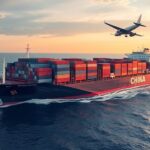
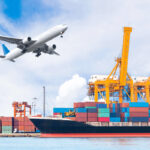


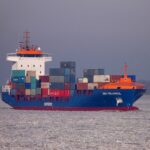


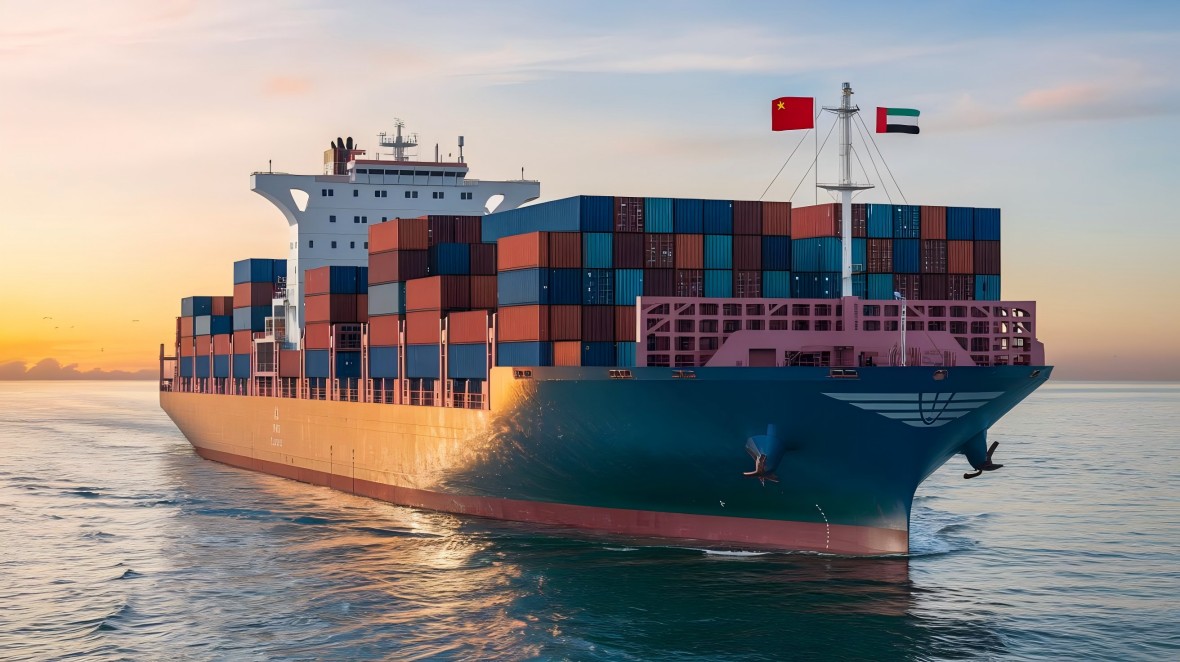








 Afrikaans
Afrikaans Shqip
Shqip አማርኛ
አማርኛ العربية
العربية Հայերեն
Հայերեն Azərbaycan dili
Azərbaycan dili Euskara
Euskara Беларуская мова
Беларуская мова বাংলা
বাংলা Bosanski
Bosanski Български
Български Català
Català Cebuano
Cebuano Chichewa
Chichewa 简体中文
简体中文 繁體中文
繁體中文 Corsu
Corsu Hrvatski
Hrvatski Čeština
Čeština Dansk
Dansk Nederlands
Nederlands English
English Esperanto
Esperanto Eesti
Eesti Filipino
Filipino Suomi
Suomi Français
Français Galego
Galego ქართული
ქართული Deutsch
Deutsch Ελληνικά
Ελληνικά Kreyol ayisyen
Kreyol ayisyen Harshen Hausa
Harshen Hausa Ōlelo Hawaiʻi
Ōlelo Hawaiʻi עִבְרִית
עִבְרִית हिन्दी
हिन्दी Hmong
Hmong Magyar
Magyar Íslenska
Íslenska Igbo
Igbo Bahasa Indonesia
Bahasa Indonesia Gaeilge
Gaeilge Italiano
Italiano 日本語
日本語 Basa Jawa
Basa Jawa ಕನ್ನಡ
ಕನ್ನಡ Қазақ тілі
Қазақ тілі ភាសាខ្មែរ
ភាសាខ្មែរ 한국어
한국어 كوردی
كوردی Кыргызча
Кыргызча ພາສາລາວ
ພາສາລາວ Latin
Latin Latviešu valoda
Latviešu valoda Lietuvių kalba
Lietuvių kalba Lëtzebuergesch
Lëtzebuergesch Македонски јазик
Македонски јазик Malagasy
Malagasy Bahasa Melayu
Bahasa Melayu മലയാളം
മലയാളം Maltese
Maltese Te Reo Māori
Te Reo Māori मराठी
मराठी Монгол
Монгол ဗမာစာ
ဗမာစာ नेपाली
नेपाली Norsk bokmål
Norsk bokmål پښتو
پښتو فارسی
فارسی Polski
Polski Português
Português ਪੰਜਾਬੀ
ਪੰਜਾਬੀ Română
Română Русский
Русский Samoan
Samoan Gàidhlig
Gàidhlig Српски језик
Српски језик Sesotho
Sesotho Shona
Shona سنڌي
سنڌي සිංහල
සිංහල Slovenčina
Slovenčina Slovenščina
Slovenščina Afsoomaali
Afsoomaali Español
Español Basa Sunda
Basa Sunda Kiswahili
Kiswahili Svenska
Svenska Тоҷикӣ
Тоҷикӣ தமிழ்
தமிழ் తెలుగు
తెలుగు ไทย
ไทย Türkçe
Türkçe Українська
Українська اردو
اردو O‘zbekcha
O‘zbekcha Tiếng Việt
Tiếng Việt Cymraeg
Cymraeg יידיש
יידיש Yorùbá
Yorùbá Zulu
Zulu